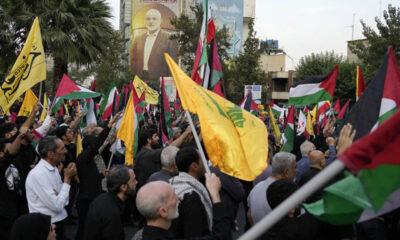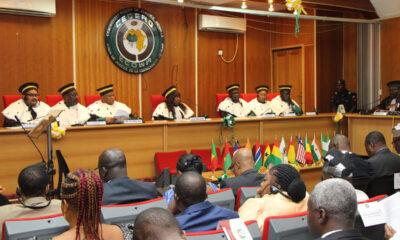International
90 killed as Bangladesh protesters insist Hasina must quit
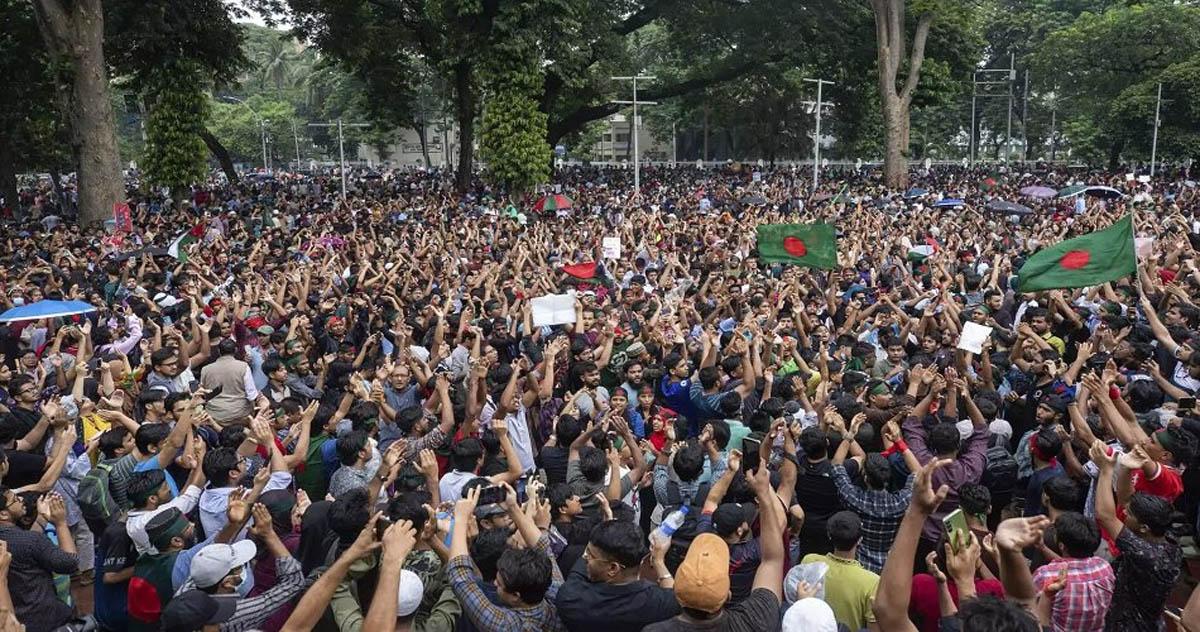
90 killed as Bangladesh protesters insist Hasina must quit
At least 91 people have been killed, including 13 police officers, and dozens more injured in a new round of violence in Bangladesh as police fired tear gas and lobbed stun grenades to disperse tens of thousands of protesters who returned to the streets to ask Prime Minister Sheikh Hasina to resign.
The deaths were reported by the police and doctors on Sunday in the capital Dhaka and the northern districts of Bogura, Pabna and Rangpur, as well as in Magura in the west, Comilla in the east, and Barisal and Feni in the south.
The attack on the police took place at the Enayetpur police station in the northwest city of Sirajganj, according to Additional Deputy Inspector General Vijay Basak of the Bangladesh police. The identity of the attackers is unknown.
The demonstrators are demanding Hasina’s resignation after earlier protests in July that began with students calling for an end to a quota system for government jobs and escalated into violence that killed 200 people.
Hasina said those who were engaging in the “sabotage” and the destruction in the name of protests were no longer students, but criminals, and said the people should deal with them with iron hands.
Authorities have blocked internet access and imposed a shoot-on-sight curfew. At least 11,000 people have been arrested in recent weeks.
‘Volatile and dangerous’
Deaths were reported from at least 11 districts including Bogura, Magura, Rangpur and Sirajganj districts, where the protesters backed by the main opposition party Bangladesh Nationalist Party (BNP) clashed with police and the activists of the ruling Awami League party and its associated bodies.
READ ALSO:
- Poverty: Shehu Sani accuses northern leaders, ex-presidents
- Cleric advises parents to lead by example in raising righteous children
- IBB denies endorsing military takeover, says X post fake
Al Jazeera’s Tanvir Chowdhury, reporting from Dhaka, described the situation as “volatile and dangerous”. “The protesters are saying that they are not going to move, until their government steps down,” he said.
“People are extremely worried [about] what’s going to happen,” Chowdhury said, adding that the crowd of protesters is growing. He also reported clashes between the protesters and supporters of the Awami League.
Prapti Taposhi, a student activist who witnessed clashes with police, told Al Jazeera the police were engaged in running battles with the demonstrators.
“I am on the street right now, and I can see so many people here. This is not just a student protest or a ‘quota protest’,” she said.
The government has now imposed an indefinite curfew that began at 6pm local time (1200 GMT), although protesters have continued to gather at the Shaheed Minar monument in central Dhaka.
Protesters called for “noncooperation”, urging people not to pay taxes and utility bills and not show up for work on Sunday, a working day in Bangladesh. Offices, banks and factories opened, but commuters in Dhaka and other cities faced challenges getting to work.
A ‘March to Dhaka’ protest has also been moved from Tuesday to Monday, a coordinator for the Anti-Discrimination Student Movement (ASD) told Al Jazeera.
“This means we are urging students and the public nationwide to start their journey to Dhaka tomorrow to lay siege to the city,” the coordinator, Asif Mahmud, said.
The government, meanwhile, announced a holiday from Monday to Wednesday. Courts will remain closed for an indefinite period. Authorities also closed schools and universities across the country.
Mobile internet service was off on Sunday, while Facebook and messaging apps including WhatsApp were inaccessible even on broadband internet. Junior Minister for Information and Broadcasting Mohammad Ali Arafat said mobile internet and messaging services were off to help prevent violence.
READ ALSO:
- Paul Okoye slams Joe Igbokwe over post on rift with twin brother, Peter
- Fuel scarcity: We’re at mercy of tank farms, marketers cry out
- Newlywed woman hangs self after fight with hubby
Arafat added to Al Jazeera that the government was acting “in a defensive position, not an offensive one”.
“These miscreants attacked our activists and leaders and unleashed violence,” Arafat said, adding that the government has “always opted for a peaceful solution” and “never wanted violence”.
The deadly protests began last month as students demanded an end to a quota system that reserved 30 percent of government jobs for the families of veterans who fought in Bangladesh’s war of independence against Pakistan in 1971.
As violence intensified, the country’s Supreme Court scaled back the quota system to 5 percent of jobs, with 3 percent for relatives of veterans.
But protests have continued demanding accountability for violence the demonstrators blame on the government’s use of excessive force.
The unrest, which spurred the government to shut down internet services, is its biggest test since January when deadly protests erupted after Hasina’s Awami League won a fourth straight term in elections boycotted by the BNP.
The protests have now grown into a wider antigovernment movement across the South Asian nation of some 170 million people. At least 11,000 people have been arrested in recent weeks.
Critics of Hasina, along with several rights groups, have accused her government of using excessive force to stamp out the movement, a charge it denies.
“We want the government to resign,” Jahirul Islam, a restaurant worker in Dhaka, told Al Jazeera.
Dhaka-based political analyst Zahed Ur Rahman said that the government would be unlikely to resign “without bloodshed”.
“For the past two days, peaceful gatherings and demonstrations have taken place across the country demanding the government’s resignation,” Rahman said, explaining that the protests were peaceful because of the absence of Awami League activists on the streets.
However, once ruling party’s activists went to confront the protesters “they use gun[s] and violence to quell a popular uprising in front of the whole world”, Rahman said.
Additional reporting by Faisal Mahmud in Dhaka, Bangladesh.
90 killed as Bangladesh protesters insist Hasina must quit
International
Mystery as Iranian Warship Sinks off Sri Lanka, Over 100 Feared Missing
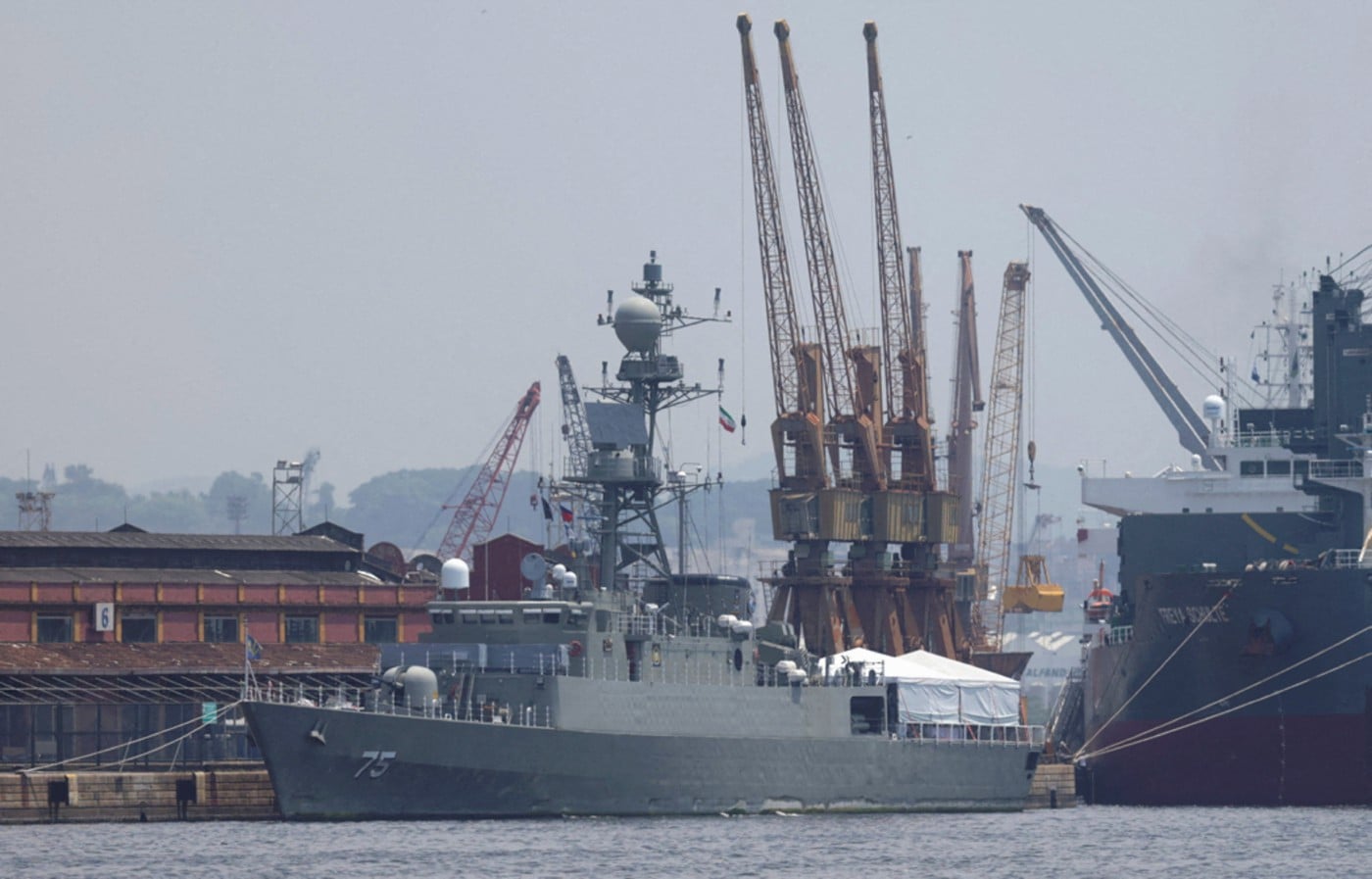
Mystery as Iranian Warship Sinks off Sri Lanka, Over 100 Feared Missing
An Iranian warship has sunk off the coast of Sri Lanka, triggering a major search and rescue operation after authorities confirmed that 32 people were rescued while several bodies were recovered from the sea.
Sri Lanka’s Foreign Minister, Vijitha Herath, told parliament on Wednesday that the vessel, identified as IRIS Dena, went down in waters off the island nation.
Initial reports from sources within the Sri Lanka Navy and the defence ministry suggested the ship may have been attacked by a submarine, with at least 101 people unaccounted for following the incident in the Indian Ocean.
However, a navy spokesman dismissed the claim that over 100 people were missing, describing the figure as inaccurate. He also rejected speculation about the cause of the sinking, saying investigations were still ongoing.
The rescued sailors, who sustained injuries during the incident, are receiving treatment at a state-run hospital in the southern port city of Galle.
According to naval authorities, a distress call was received from the Iranian vessel, prompting a swift joint rescue effort by the navy and the Sri Lanka Air Force. Search operations were immediately launched in the affected area of the Indian Ocean.
While defence sources hinted at a possible underwater attack, officials stressed that the exact circumstances surrounding the sinking remain unclear, and no group or country has been identified as responsible.
The incident has raised fresh security concerns in the strategically sensitive Indian Ocean region, as authorities continue efforts to account for all crew members and determine what led to the vessel’s sudden loss.
International
US Military Says It Has Struck Nearly 2,000 Targets in Iran as War Escalates
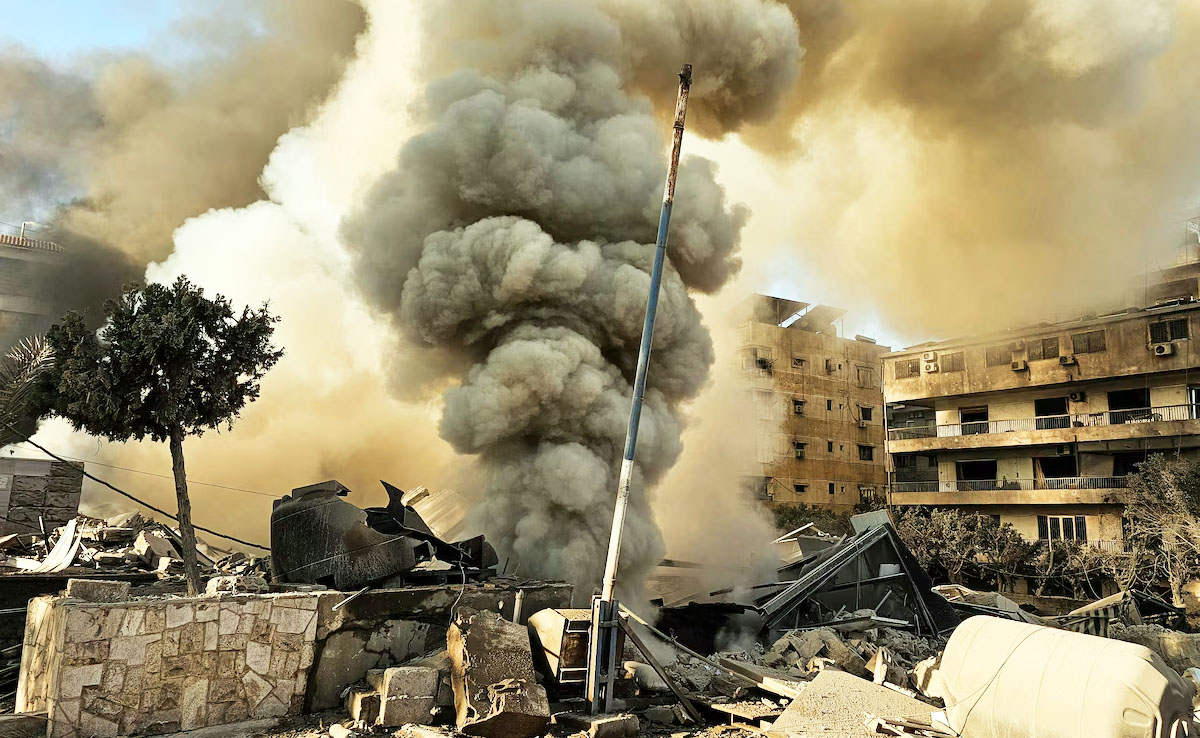
US Military Says It Has Struck Nearly 2,000 Targets in Iran as War Escalates
The United States military says it has struck nearly 2,000 targets inside Iran as part of a large‑scale military campaign launched over the past week, marking one of the most intense offensives in the region in decades. The operation — coordinated with Israel — has rapidly expanded the conflict, drawing in multiple fronts and prompting sharp responses from Tehran.
According to Admiral Brad Cooper, head of United States Central Command (CENTCOM), American forces have carried out sustained day‑and‑night strikes using more than 2,000 munitions against Iranian military and strategic infrastructure. “We’ve already struck nearly 2,000 targets with more than 2,000 munitions,” Cooper said in an operational update, adding that the US has severely degraded Iran’s air defenses and destroyed hundreds of ballistic missiles, launchers, and drones.
The strikes form part of what CENTCOM officials are calling an unprecedented operation, described by some military analysts as the largest build‑up of firepower in the Middle East in a generation. Cooper said the US campaign has targeted a wide range of military assets, including missile batteries and launchers, air defence systems and radar sites, naval vessels — including 17 Iranian ships and a submarine — command and control centres, and drone and UAV facilities. Cooper also asserted that the Iranian navy has been effectively neutralised in key waterways. “Today, there is not a single Iranian ship underway in the Arabian Gulf, Strait of Hormuz or Gulf of Oman,” he said, highlighting the sweeping impacts of the strikes.
READ ALSO:
- FG Bans Roadblocks, Cash Tax Collection Nationwide
- Trade Row Looms as Trump Threatens Spain After Refusal to Support Iran Strikes
- UK, France Deploy Warships, Anti‑Drone Helicopters to Cyprus After RAF Akrotiri Strike
The Pentagon has compared the pace and scale of the initial strikes to the “shock and awe” campaign during the 2003 Iraq invasion, with the number of targets hit in the first 24 hours described as nearly double that earlier offensive. US officials say the current campaign — sometimes referred to as Operation Epic Fury — continues around the clock as forces aim to eliminate Tehran’s ability to project power.
Iran has responded vigorously, launching hundreds of ballistic missiles and thousands of drones at US bases and allied positions across the Gulf region, including strikes against American facilities in Bahrain, Iraq, Kuwait, Qatar, and Saudi Arabia. The volatility has sparked fears of a wider regional conflict, with both sides trading increasingly severe attacks. Tehran’s Revolutionary Guard has made conflicting claims about control of strategic waterways like the Strait of Hormuz, suggesting that Iran maintains dominance even as US and allied forces press their assault. Independent verification of these claims remains difficult amid the fog of war.
Beyond military dynamics, the conflict has disrupted global energy markets and raised concerns about the safety of key shipping lanes. President Donald Trump has indicated that the US Navy may escort oil tankers through the Strait of Hormuz if necessary, aiming to keep energy flows stable and reassure global markets. The massive number of targets hit reflects the breadth of the US strategy, which combines air, naval, missile and cyber capabilities to degrade Iran’s defence posture. CENTCOM has deployed tens of thousands of troops, hundreds of aircraft, carriers, and bombers to sustain the pressure.
Humanitarian organisations estimate that hundreds of Iranian civilians have been killed, and thousands more injured, as the conflict continues to escalate, drawing international concern over civilian harm and the legal basis for such large‑scale offensive operations. As the military campaign unfolds, analysts warn that the conflict has the potential to widen, involving more actors across the Middle East and prompting further diplomatic and economic fallout.
US Military Says It Has Struck Nearly 2,000 Targets in Iran as War Escalates
International
Trade Row Looms as Trump Threatens Spain After Refusal to Support Iran Strikes

Trade Row Looms as Trump Threatens Spain After Refusal to Support Iran Strikes
US President Donald Trump has threatened to halt all trade with Spain after Madrid refused to allow US military aircraft to use Spanish bases for operations linked to recent strikes on Iran, escalating tensions with a key NATO ally. The warning came during a White House meeting with German Chancellor Friedrich Merz, where Trump also criticised the United Kingdom for what he described as limited cooperation.
Spain’s leftist administration under Prime Minister Pedro Sánchez maintained that US forces could only use bases in Rota and Morón for operations consistent with the United Nations Charter, noting that the bases were not involved in recent strikes. Trump dismissed this position, calling Spain “terrible” and asserting that he had directed Treasury Secretary Scott Bessent to suspend all economic dealings with Madrid.
Trump also targeted Spain for not meeting his preferred NATO defence spending target of 5% of GDP, arguing that the US bears too much of the alliance’s costs. “So we’re going to cut off all trade with Spain. We don’t want anything to do with Spain,” Trump said, claiming he could terminate business ties immediately.
READ ALSO:
- UK, France Deploy Warships, Anti‑Drone Helicopters to Cyprus After RAF Akrotiri Strike
- NRC Expands Abuja–Kaduna Train Service with Additional Trips
- Dangote Expands into Steel, Power, Ports to Drive Africa’s Industrial Growth
Legal experts have questioned the feasibility of Trump’s threat, noting that trade agreements with Spain are negotiated through the European Union, limiting any unilateral action. Madrid responded by describing its US trade relationship as mutually beneficial, emphasizing adherence to international law, EU agreements, and the ability to mitigate potential economic impacts while diversifying supply chains.
Sánchez has consistently called for diplomatic solutions to the Iran conflict, arguing that opposing repressive regimes does not justify military escalation. Spain has also been critical of Israel’s actions in Gaza, accusing its government of genocide — a claim Israel denies.
Trump’s criticism of the United Kingdom focused on restrictions regarding the use of UK bases in Cyprus and Diego Garcia, which are limited to “specific and defensive” operations. He also expressed frustration over the UK’s agreement to return the Chagos Islands to Mauritius, home to the Diego Garcia base.
The dispute highlights mounting strains in transatlantic relations, exposing disagreements over military strategy, defence spending, and the conduct of operations in the Middle East. Analysts warn that such tensions could complicate NATO coordination and EU‑US relations if left unresolved.
Trade Row Looms as Trump Threatens Spain After Refusal to Support Iran Strikes
-
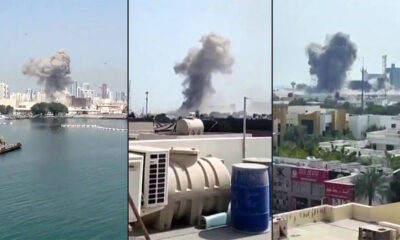
 International2 days ago
International2 days agoIran Retaliates: Gulf States Allied With US Hit by Missiles, Drones
-
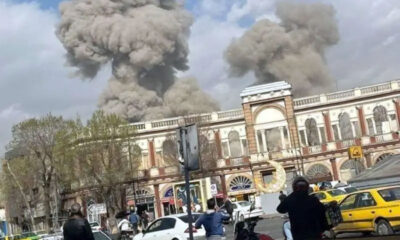
 International2 days ago
International2 days agoSaudi Arabia Denies Lobbying US to Strike Iran as Gulf States Respond to Escalation
-

 International2 days ago
International2 days agoSeveral U.S. Warplanes Crash in Kuwait Amid Ongoing Iranian Strikes
-

 metro2 days ago
metro2 days agoDaddy Freeze Warns Couples Over 40: ‘Avoid Moving Abroad, Especially US, UK’
-
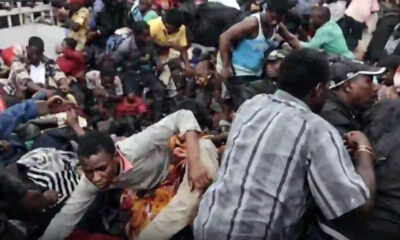
 metro3 days ago
metro3 days agoFour Die in Katsina Stampede During Ramadan Alms Distribution
-

 Business3 days ago
Business3 days agoGlobal Crude Hits $73 as Middle East Tensions Escalate
-
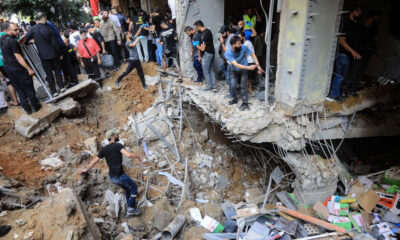
 International2 days ago
International2 days agoIsraeli Airstrikes Kill 31 in Lebanon as Hezbollah Loses Senior Figures
-

 Politics2 days ago
Politics2 days agoWike Blasts Kingibe Over FCT Council Election Remarks



